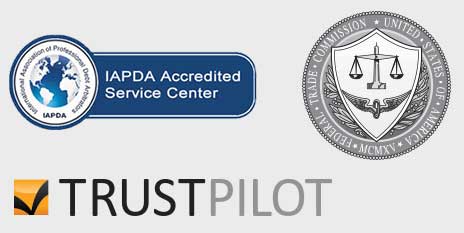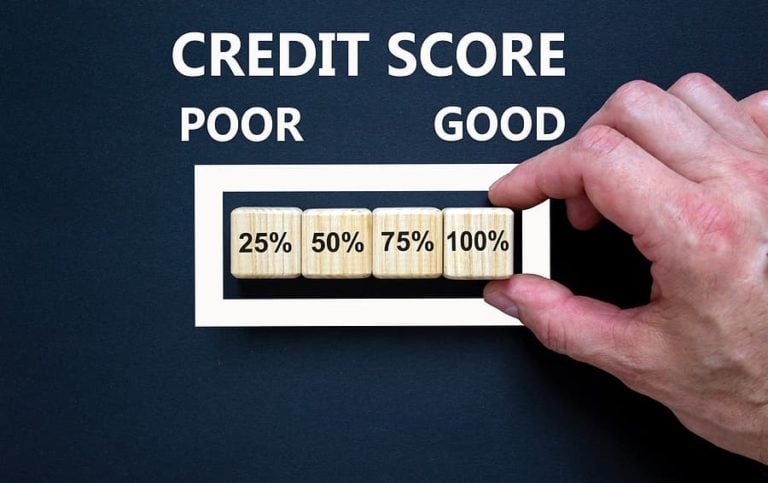Debt Management Plans
Debt management plans (DMPs) are structured programs designed to help individuals repay unsecured debt through organized, ongoing payments. These plans focus on simplifying repayment, coordinating payments and providing guidance to support consistent debt management over time.
United Settlement offers debt management services that emphasize transparency, clear expectations and individualized review. These services do not involve new loans or bankruptcy filings and are intended for individuals who can maintain regular monthly payments.
Benefits of Debt Management
How Does It Work?
Debt Relief Reviews
What is a Debt Management Plan?
A Debt Management Plan (DMP) is a structured program designed and managed by a credit counseling agency that works on your behalf to negotiate lower interest rates and monthly payments with your creditors.
Instead of having to keep track of multiple payments every month to different creditors, a DMP allows you to make one payment to your counseling agency, who then makes the appropriate disbursements to your creditors according to terms structured in the plan.
Do Debt Management Plans Work?
Debt management plans can be effective for individuals whose financial situation supports consistent repayment. A DMP does not reduce the total amount owed but provides a structure for managing unsecured debt. The process generally includes:
- Financial review and assessment: Your income, expenses, and unsecured debts are reviewed to determine whether a debt management plan is appropriate for your situation.
- Debt organization: Eligible debts are grouped into a structured repayment plan designed to simplify monthly payments.
- Monthly payments: Payments are made according to an agreed-upon schedule, helping reduce missed or late payments.
- Ongoing support and monitoring: Progress is tracked throughout the program to help maintain consistency and accountability.
Debt management plans aren’t designed to eliminate debt or guarantee specific outcomes. Their effectiveness depends on income stability, total debt and the ability to maintain regular payments over time.
Debt Management Options
- Debt management plans organize existing balances into a structured repayment schedule. These programs may include budgeting guidance, payment coordination and creditor communication support. Principal balances are not reduced, and regular payments are required.
- Debt settlement involves negotiating with creditors to potentially reduce balances owed. Participants typically make deposits into a dedicated account while negotiations occur. Results are not guaranteed and depend on creditor participation.
- Debt consolidation combines multiple unsecured debts into a single payment, often through a consolidation loan. Eligibility depends on income and credit qualifications, and interest rates may vary.
How to pick a credit counseling agency?
A good credit counseling agency will provide a realistic budget for you, given your specific financial situation. If you enroll in a Debt Management Plan (DMP), a good counseling agency will ensure that proper concessions are put into place, maintain clear communication with your creditors, and distribute proper payment amounts to individual creditors as structured in the DMP.
The Federal Trade Commission (FTC) recommends working with a credit counseling agency staffed with certified debt counselors who can help develop a budget and debt management plan for you following an interview.
Read reviews on the counseling agencies you interview to learn experiences other folks had. There should be no hidden fees – in fact, many reputable credit counseling agencies operate as non-profit organizations.
Avoid any counseling agency that attempts to charge upfront fees – including an application fee, “membership” fee, or any per-creditor fees. However, you should expect to pay regular monthly fees of a modest sort – approximately $25-50 per month to your counseling agency for the services they provide related to a DMP.


Enrolling in a Debt Management Plan
Following enrollment in a DMP, you will begin making regular, pre-determined monthly payments directly to the counseling agency, who will then properly allocate funds to your individual creditors.
In many cases, these payments will be made automatically from your bank account to the counseling agency. This is done in significant part to ensure the timeliness of payments, as late payments to your counseling agency will result directly in late payments to your creditors, damage to your credit score and the possible rescindment of the interest rate and payment concessions included within the DMP, defeating the purpose of setting up the plan in the first place.
You will receive monthly statements from the counseling agency and your creditors, and you should compare them to make certain that there aren’t any material discrepancies and that the counseling agency is properly paying your creditors.
What happens to your credit cards?
Once enrolled in a DMP, all your credit card accounts will be closed (with the possible exception of an “emergency” credit card remaining open) and you will be unable to obtain new credit.
The closing of accounts will have a negative effect on your credit score, though creditors view enrollment in a DMP as a positive development for your credit profile, as your enrollment indicates a willingness to pay your debts.
That said, it would be an extremely bad idea to pursue new credit while enrolled in a DMP, as creditors will become aware of any applications for new credit by simply viewing your credit report. This can result in creditors rescinding interest rate and payment concessions that were put into place through implementation of the DMP.
Just focus on making regular timely payments to your counseling agency and this will ensure the success of your DMP.
Why creditors do it and the perk of Debt Management
Creditors make concessions through debt management plans because it allows them to collect on accounts that could otherwise reach charge-off status and become worthless.
Aside from enjoying lower interest rates and monthly payments, you can expect any annoying collection phone calls to become a thing of the past once creditors have received three monthly payments through a DMP.
What’s more, after debts have been paid off through a DMP, creditors often mark debt as “paid in full”. This type of language, if included on a credit report, can help restore a credit score back to health.

Who Should Use a Debt Management Plan?
Debt management plans may be appropriate for individuals with multiple unsecured debts, difficulty keeping up with payments and sufficient income to follow a structured repayment plan. These programs require consistent participation and payment reliability.
DMPs may not be suitable for individuals experiencing severe financial hardship, significant income loss or an inability to meet required monthly payments.
How to Get Started with a DMP
Getting started with a debt management plan begins with a financial review. Outstanding debts, income, and monthly expenses are evaluated to determine whether debt management services are appropriate.
Available options are explained clearly so individuals can make informed decisions. Enrollment is not required following a consultation, and debt management program availability may vary based on location and financial circumstances.
Education Center
Debt Settlement by State
Debt Management FAQ
A debt management plan (DMP) is a common solution for individuals who are carrying too much unsecured credit card debt and are having difficulty paying bills to a number of different creditors each month. A reputable credit counseling agency can structure a DMP for you in which you make one streamlined payment each month to the counseling agency, who in turn allocates funds to your various creditors. All accounts included in a DMP become inactive, and the closing of these accounts will temporarily negatively impact your credit score. However, a DMP will result in a lower blended monthly interest rate and monthly payment while giving you the opportunity to demonstrate a consistent payment history, rebuild your credit profile and get out of debt over a three- to five-year time period.
A debt management plan may be a good idea for individuals who want structured repayment support and have the ability to make consistent monthly payments. It’s important to compare options and speak with a professional to review your financial situation and confirm eligibility before enrolling.
Some debt management services involve fees. Fee structures vary by provider, and all costs should be clearly disclosed and reviewed carefully before enrollment. Whether for personal debt relief or business debt relief, be sure to prioritize debt management companies that are licensed with transparent pricing.
You might choose to start a debt management plan if you have multiple debts that you’re struggling to pay on time each month, you’re not lowering your total balances and you’re unclear on how to become debt-free. Taking action as soon as possible can help prevent worsening debt challenges.
It is not common for an individual to have more than one debt management plan. In a DMP, the debtor works with a credit counseling agency who has existing relationships with credit card companies and works to negotiate lower interest rates and monthly payments over the life of the plan. Participants are encouraged to include as many accounts that can be brought into the DMP, depending on the individual circumstances associated with each account, the debtor, and the counseling agency relationships. When a debt management plan is comprehensively constructed, there simply isn’t a need for a second DMP.
For those individuals with existing mortgages, enrolling in a debt management plan should have little to no consequence. A mortgage payment remains a top priority, and keeping current on payments toward a debt management plan should be considered on equal footing. Both become equally important. For those individuals enrolled in a debt management plan who are pursuing a mortgage or looking to refinance, it can prove difficult to get more attractive interest rates and terms, because the presence of the DMP indicates some degree of credit risk that potential lenders will seek to be compensated for in the form of higher interest expense.
Enrolling in a debt management plan generally will not have a negative impact on a credit score. All accounts entered into the plan must be closed, but even these closed accounts can remain on a credit report for up to ten years, resulting in less of an impact in reducing the average age of accounts and lowering a credit score. Closing accounts can lower the total available credit (but not by much if the accounts being closed were already close to “maxed out”) and therefore raise the credit utilization ratio, and this can have a negative effect on a credit score. However, when timely monthly payments are made against the DMP, positive credit history builds, and there generally will be minimal to no negative impact on a credit score as a result of the debt management plan.
Debt Management plans typically are designed for three to five year time periods, and this breaks out into anywhere from 36 to 60 months total duration. The DMP is designed to facilitate the complete payment of all unsecured debts included within the program over the designated time frame.
A debt management plan is a structured agreement entered into among multiple parties – the debtor, creditor, and credit counseling service. A properly structured DMP that is overseen by a skilled credit counselor helps debtors get out of debt while assisting creditors in collecting money that is owed to them. It is the responsibility of the debtor to make one timely monthly payment to the counseling agency, who then disburses specified amounts to the individual creditors participating within the plan. Creditors make interest rate concessions through debt management plans that are arranged by counseling agencies because doing so allows creditors to collect on accounts that could otherwise become worthless. Debt Consolidation involves consolidating multiple debts into one single loan, typically resulting in a lower blended monthly interest rate, a lower monthly payment, and lower interest expense over the life of the loan. Debt consolidation does not involve a third-party credit counseling service, and the responsibility is on the debtor to use the proceeds of the debt consolidation loan to pay off the pre-existing unsecured debts, leaving the debt consolidation loan and one monthly payment to pay off in a streamlined, simplified manner.
Debt management plans can be worth considering for those seeking organization and payment stability rather than debt reduction. Whether or not it’s the best option will depend on personal circumstances and financial goals.
Top Videos Related to Debt Management
Debt Management
See how you can keep your automobile and reduce your payments by using debt consolidation.
Too Much Credit Card Debt
Issues start to surface when a borrower becomes overly casual with their credit lines, using credit cards for luxury purchases and other expenses that push them to live beyond their financial means.
Credit Card Interest Rates
Credit card interest rates are classified into three types: variable, fixed, and promotional. Proceed with the following actions to reduce your credit card interest rates effectively.
Master Your Finances:
Our Latest Insights & Articles













